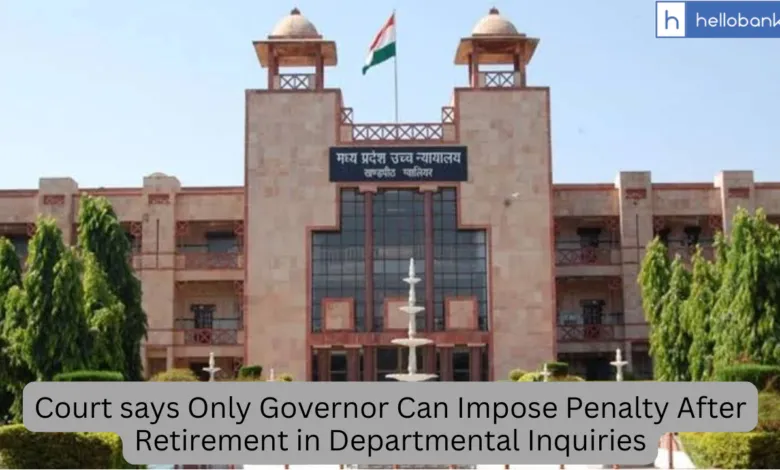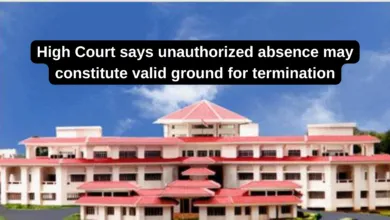
The Madhya Pradesh High Court has annulled a penalty order imposed on retired Forest Ranger Harivallabh Chaturvedi, ruling that it was issued without following proper legal procedures outlined in the Madhya Pradesh Civil Services (Pension) Rules, 1976. The court highlighted that only the Governor has the authority to impose penalties on retired government employees after departmental inquiries.
Court’s Ruling on Pension Rules
Justice Anil Verma, presiding over the case, referred to Rule 9(2)(a) of the Pension Rules. This rule states that while a departmental inquiry initiated before an employee’s retirement can continue post-retirement, any penalty resulting from that inquiry must be imposed by the Governor, who is the highest authority in the state.
The court noted:
“The failure to follow this mandatory procedure renders the order passed by the disciplinary authority vulnerable.”
The Case Background
Harivallabh Chaturvedi, a retired Forest Ranger, was penalized for unauthorized road construction, which allegedly caused monetary losses to the government. The disciplinary proceedings against him had started before his retirement, but the penalty was imposed after he had retired.
Chaturvedi challenged the penalty order, arguing that the disciplinary authority did not have the power to issue the punishment after his retirement. He pointed out that, under Rule 9(2)(a) of the Pension Rules, only the Governor could approve such actions post-retirement.
Legal Precedent and the Court’s Decision
The court referred to a previous case, Prem Prakash Sharma vs. MPMKVVCL (2018), where it was held that the Governor is the only authority who can impose penalties on retired government employees following departmental inquiries. In Chaturvedi’s case, the court found that this requirement was not met, rendering the penalty order invalid.
The court ruled:
“Any penalty can only be issued by the Governor. In this case, the mandatory procedure was not followed. Hence, the impugned order dated 23.05.2022 is beyond jurisdiction and must be quashed.”
Court’s Directions
As a result, the court quashed the penalty order and directed the State to release all retiral benefits owed to Chaturvedi within two months. Additionally, the court awarded 6% interest per annum on the delayed payments.
Conclusion
The ruling emphasizes the importance of adhering to statutory procedures in imposing penalties on retired government employees. The High Court’s decision serves as a reminder that, under the law, only the Governor holds the authority to approve such penalties post-retirement.

